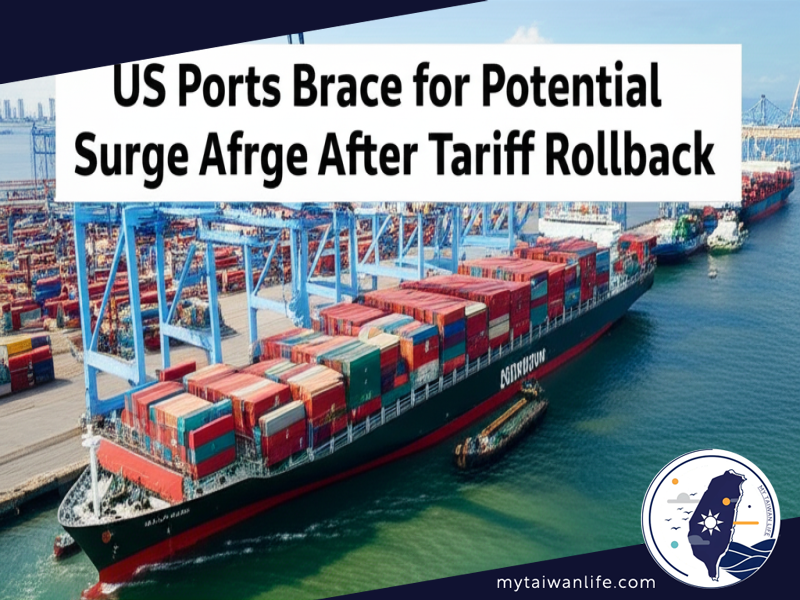US Ports Brace for Potential Surge After Tariff Rollback
A temporary truce in the US-China trade war could lead to a flood of imports, but long-term consequences remain.

US ports are navigating a period of dramatic uncertainty as they brace for potential fluctuations in cargo volume. While a slowdown in activity is currently observed, a surge in imports could soon follow the recent US-China announcement of reduced tariffs.
Starting Wednesday, goods leaving China bound for the US face a 30% tariff rate, a notable decrease from the previous 145% rate. This temporary de-escalation in tariffs, lasting for 90 days, is expected to trigger a response from retailers eager to capitalize on the reduced costs. Experts anticipate retailers will frontload cargo to bring in inventory before tariffs potentially increase again.
"You’re right kind of smack dab in the middle of when all that holiday merchandise is supposed to be coming in. So, there might be some retailers who decide to bring more product in early to get ahead of that potential expiration if they’re able to," said Jonathan Gold, vice president of supply chain and customs policy at the National Retail Federation.
Flexport, a logistics and freight forwarding broker, anticipates a "boom" in bookings in the wake of the announcement. Peter Boockvar, an economist at The Boock Report, predicts a rush of ordering in the coming weeks and months. He also notes that the cost of transportation could increase.
Despite these predictions, West Coast ports are currently experiencing a decline in ship calls and cargo volume. Gene Seroka, the executive director of the Port of Los Angeles, told CNN that they expect a 20% decrease in ship calls and a 25% drop in cargo volume this month. The Port of Long Beach saw a significant reduction in cargo last week as well.
The Northwest Seaport Alliance, representing the ports of Seattle and Tacoma, forecasts an 8% to 15% drop in volume compared to usual. Vessels from China arriving this week are carrying less cargo than usual. The alliance emphasizes the lasting consequences of tariffs, including market disruption and lost business, regardless of short-term rate reductions. Consistency is key for a smooth supply chain, they added.
The East Coast ports are also expected to see a similar trend, with any cargo surge potentially delayed until next month due to longer transit times. Jonathan Gold suggests a slowdown in the next few weeks followed by an uptick until July.
Despite the reduction, the 30% tariff on Chinese imports remains a challenge for many businesses, especially smaller ones. The US Chamber of Commerce has reaffirmed its request for the Trump administration to exempt small businesses from tariffs. Jonathan Gold noted larger retailers are better positioned to mitigate the costs, leading to ongoing discussions about the overall impact.
Other Versions
Los puertos de EE.UU. se preparan para un posible repunte tras la retirada de aranceles
Les ports américains se préparent à une hausse potentielle après le recul des droits de douane
Pelabuhan AS Bersiap Menghadapi Potensi Lonjakan Setelah Pembatalan Tarif
I porti statunitensi si preparano a una potenziale impennata dopo il ritiro dei dazi doganali
米港湾、関税撤廃後の急増に備える
미국 항만, 관세 환급 후 물동량 급증에 대비하다
Mga Daungan ng US Handa sa Potensyal na Pagsulpot Pagkatapos ng Pagbawi sa Taripa
Порты США готовятся к потенциальному всплеску после отмены тарифов
ท่าเรือสหรัฐฯ เตรียมพร้อมรับมือการทะลักเข้าของสินค้า หลังการลดภาษี
Các Cảng Hoa Kỳ Chuẩn Bị Cho Khả Năng Tăng Đột Biến Sau Khi Giảm Thuế

